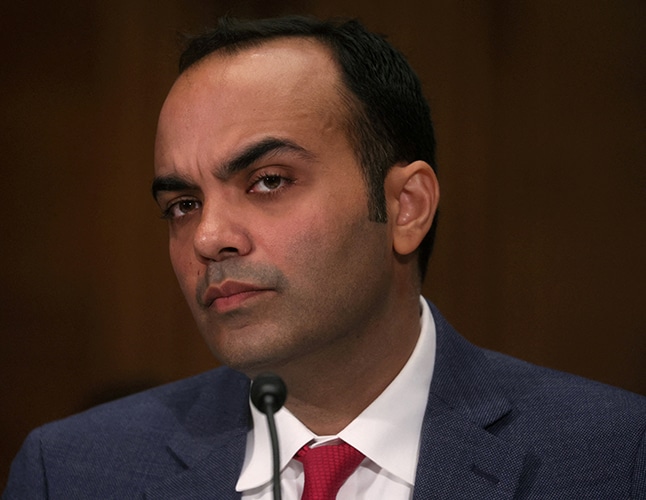The top U.S. agency for consumer financial protection will scrutinize credit card reward programs after a surge in customer complaints, its chief said.
Rohit Chopra, director of the U.S. Consumer Financial Protection Bureau, has clashed with credit card issuers since last year over regulations capping late fees.
“We are going to be looking into the credit card rewards market due to an increase in consumer complaints,” Chopra told reporters March 26 on the sidelines of an industry conference in Washington.
His remarks signaled the agency could also issue rules or take enforcement actions against banks offering products aimed at affluent clients.
“What the marketing gurus and consultants are telling credit card issuers is that they should focus consumers’ attention on splashy rewards, but then withhold information from them when they’re paying lots of interest and could switch to a lower-rate card, even within the same bank,” Chopra said.
Credit card issuers sometimes hide the “darker side” of their offerings of cash back, miles and points in their terms and conditions, Chopra told attendees at the Consumer Bankers Association conference earlier Tuesday. The fine print can allow card issuers to revoke rewards or make points difficult to redeem, he said.
Chopra has emphasized the need for more robust risk management and tougher regulation of the financial industry after three regional lenders collapsed last year. He is also a protege of Democratic U.S. Senator Elizabeth Warren, a vocal critic of the banking industry who was instrumental in creating the CFPB.
The watchdog was established after the 2008 financial crisis to protect consumers from unfair, deceptive, or abusive financial practices. Chopra has taken an expansive view of this remit, targeting big tech companies that offer services such as digital payments.
Companies that offer “Buy-now, pay-later” (BNPL) services could also face stricter rules, Chopra said, underscoring a longstanding stance.
Lenders have expressed concern that credit reports exclude data from consumers’ BNPL transactions, resulting in incomplete assessments of borrowers’ financial health.
“We’re starting to see ‘buy-now, pay-later,’ firms shift from being at the point of sale with retailers to now selling goods through their own proprietary apps, using lots of personal data to induce more purchasing and borrowing,” Chopra said. “So that obviously raises issues that we continue to look into.”
This article was provided by Reuters.







